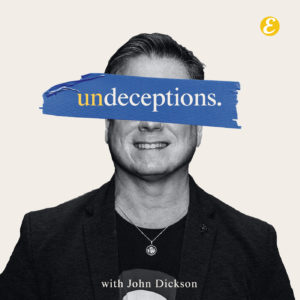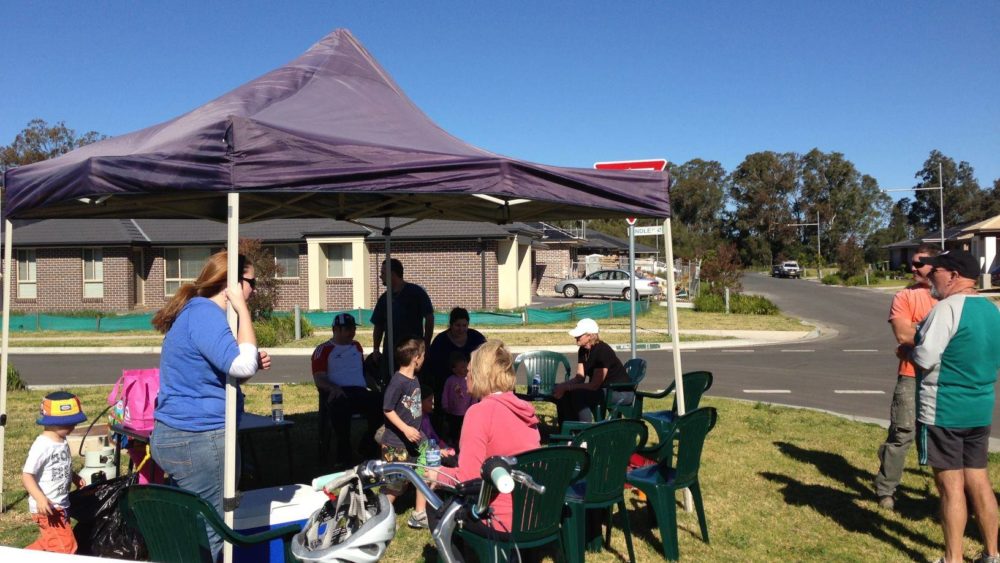The church is good for social connection, says federal politician and atheist
Social cohesion in Australia is on the decline, says federal MP Andrew Leigh. Whether it’s churchgoing or union membership, joining scouts or girl guides or being part of the Rotary or Lion’s Club, Australians are becoming increasingly disconnected.
In a wide-ranging interview on Eternity‘s new podcast series Undeceptions with John Dickson, Leigh argues that since the beginning of the 21st century, “social capital” – the idea that networks of trust and reciprocity that link us together have inherent value – has been recognised to be just as important as physical capital (like roads, bridges, cars) and human capital (our skills and education).
“It’s the notion that the networks themselves matter – that societies can do better when they’re integrated, better interconnected, and that individuals are more likely to prosper when they have more ties to others,” said Leigh.
“‘[Churches] are still pretty effective at bringing people together who would not otherwise rub shoulders in the street.” – Andrew Leigh MP
Andrew Leigh is the Federal Member for Fenner in the ACT and Shadow Assistant Minister for Treasury and Charities. He is the author of several books including Disconnected (2010), which looks at the reasons why Australia’s social fabric has begun to fray.
In 2018, an OmniPoll survey of 1200 Australians conducted by Martin O’Shannessey found that 17 per cent of Australians had no friends they could visit without invitation (up from 7 per cent who said the same thing in 1984). The average number of close friends people had almost halved in 13 years, with those surveyed saying they only have 3.9 close friends in 2018 compared to the 6.4 close friends on average in 2005.
Similarly, the proportion of Australians who know their neighbours is decreasing: 18 per cent of Australians said they couldn’t reach out to any of their neighbours for assistance in times of crisis, rising from 11 per cent who said the same thing in 2005.
Leigh told John Dickson that one reason for the disconnectedness in society is the decline in church attendance.
“Traditionally, those who have gone to church have been more likely to volunteer in their local communities,” said Leigh.
“Even putting aside their religious volunteering, churchgoers are more likely to donate money, more likely to donate blood. Robert Putnam, in his book American Grace sums it up by saying that religious people are just … nicer. Not because they’re congenitally nicer. They weren’t nicer before they turned up at the church or the synagogue or the mosque. But being there puts them in a milieu in which people ask them to help out and in which they become more involved in their community.”
Leigh told Dickson that far from being the homogenous “holy huddle” that is so often stereotyped, people who attend church are “more likely to know somebody who’s on welfare and more likely to know a CEO”.
“Churches in Australia have done a good job of cutting across class differences,” said Leigh. “They’re still pretty effective at bringing people together who would not otherwise rub shoulders in the street.”
“If you’ve just taken communion next to somebody who’s unemployed, it’s far less likely you will go out into the world and stigmatise or demonise somebody who is jobless and say the only reason somebody would be out of a job is if they’re a worthless drag on society. It’s much more likely you’ll see them as a fellow human being.”
 Listen to the full episode 5 of Undeceptions here: Social capital. Undeceptions is hosted by author and historian John Dickson and seeks to tackle common myths and misconceptions about the Christian faith.
Listen to the full episode 5 of Undeceptions here: Social capital. Undeceptions is hosted by author and historian John Dickson and seeks to tackle common myths and misconceptions about the Christian faith.
Email This Story
Why not send this to a friend?



